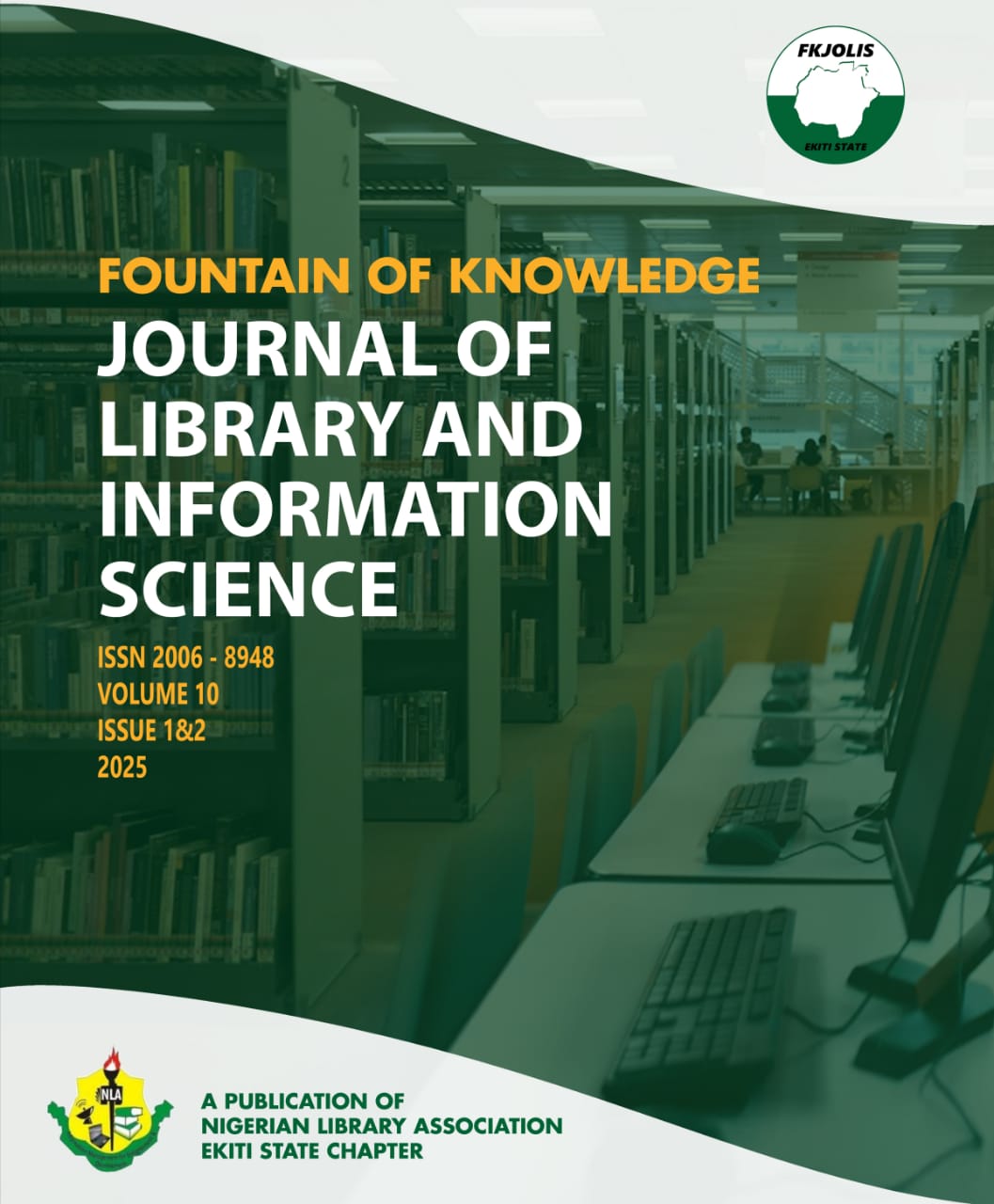Level of Digital Literacy among Library and Information Science Doctoral Students in South-West Nigeria
Main Article Content
Abstract
The rapid growth of digital technologies in research and academic communication has heightened the demand for advanced digital literacy among doctoral students in Nigeria. Yet, despite its central role in knowledge production, persistent gaps remain in students’ digital readiness, particularly in access, application, and critical evaluation of resources. These challenges are compounded by infrastructural limitations, unequal access to tools, and inadequate integration of digital literacy training in postgraduate curricula. This study investigated the level of digital literacy among Library and Information Science (LIS) doctoral students in Information Resources Management programmes across six National Universities Commission-accredited institutions in South-West Nigeria during the 2024/2025 academic session. A survey design was employed to obtain standardized data from a total population of 375 doctoral students, using a total enumeration approach. Data were collected through a structured, self-administered questionnaire developed by the researcher and validated by academic experts. The instrument, guided by Gilster’s (1997) conceptual framework, assessed digital competencies across five domains: media literacy, information literacy, digital communication, cybersecurity awareness, and digital citizenship. Reliability testing yielded a high internal consistency coefficient (Cronbach’s Alpha = 0.954). Descriptive analysis revealed that LIS doctoral students possessed a high level of digital literacy, age and employment status significantly influenced digital literacy levels, whereas gender and marital status showed no significant effect. The study concludes by recommending the integration of structured digital literacy programmes within doctoral curricula, regular skill assessments, and equitable access to digital resources for critically aware, ethically grounded, and technologically proficient researchers in the field of LIS.

